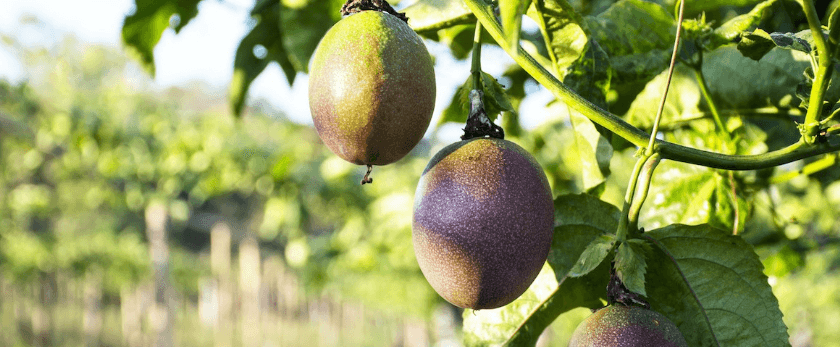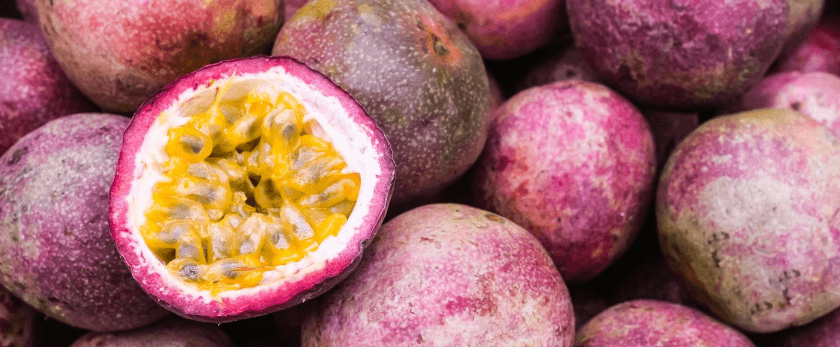Passion fruit, also known as Passiflora edulis, is a delicious and nutritious fruit that is native to South America. It is a climbing vine that produces beautiful flowers and tasty fruits. Growing passion fruit is not only a fun and rewarding experience, but it also contributes to a greener and more sustainable lifestyle. In this article, we will discuss how to care for passion fruit, the best time to grow it, and common problems that may arise.
How to Care for Passion Fruit
Watering
Passion fruit plants require consistent watering to thrive. They prefer well-drained soil that is kept moist but not waterlogged. During the growing season, water your passion fruit plant deeply once or twice a week, depending on the weather and soil conditions. In hot and dry climates, you may need to water more frequently. However, be careful not to overwater as it can lead to root rot.
Light
Passion fruit plants need plenty of sunlight to grow and produce fruits. They thrive in full sun, but they can also tolerate partial shade. If you live in a hot climate, it is best to provide some shade during the hottest part of the day to prevent the leaves from burning. If you are growing passion fruit indoors, make sure to place it near a sunny window or use grow lights to provide enough light.
Soil
Passion fruit plants prefer well-drained, slightly acidic soil with a pH between 6.5 and 7.5. They do not do well in heavy clay soil, so it is essential to amend the soil before planting. You can add organic matter, such as compost or aged manure, to improve the soil's texture and fertility. It is also recommended to add a layer of mulch around the base of the plant to retain moisture and suppress weeds.
Fertilizer
Passion fruit plants are heavy feeders and require regular fertilization to produce healthy fruits. Before planting, mix a slow-release fertilizer into the soil. During the growing season, you can use a balanced fertilizer every two to three weeks. Alternatively, you can use organic fertilizers, such as compost or fish emulsion, which are gentler on the plant and the environment.
Pruning
Pruning is essential for passion fruit plants to maintain their shape, promote healthy growth, and increase fruit production. Prune your passion fruit plant in late winter or early spring before new growth appears. Remove any dead, damaged, or diseased branches. You can also prune to control the size of the plant and encourage more lateral growth. Regular pruning also helps to improve air circulation and prevent fungal diseases.

What is the Best Time to Grow Passion Fruit?
The best time to grow passion fruit depends on your location and climate. In general, passion fruit plants prefer warm and humid climates with temperatures between 70-85°F. They can be grown year-round in tropical regions, but in temperate climates, it is best to plant them in the spring after the last frost. Passion fruit plants are not frost-tolerant, so it is essential to protect them during the winter months.
Common Problems with Passion Fruit
Despite its many benefits, growing passion fruit can come with some challenges. Here are some common problems you may encounter and how to address them:
Pests
Passion fruit plants are susceptible to various pests, including aphids, mealybugs, and spider mites. These pests can cause damage to the leaves and fruits, leading to reduced growth and yield. To control pests, you can use natural methods such as handpicking, spraying with a strong stream of water, or using insecticidal soap. It is also essential to keep the plant healthy and stress-free to prevent pest infestations.
Diseases
Fungal diseases, such as fusarium wilt and root rot, can affect passion fruit plants. These diseases are caused by overwatering, poor drainage, and lack of air circulation. To prevent fungal diseases, make sure to water your plant correctly, prune regularly, and provide adequate air circulation. If your plant does get infected, remove the affected parts and treat with a fungicide.
Lack of Fruit Production
If your passion fruit plant is not producing fruits, it could be due to several reasons. One common cause is a lack of pollination. Passion fruit plants are self-pollinating, but they produce more fruits when cross-pollinated by insects. You can attract pollinators to your garden by planting flowers and avoiding the use of pesticides. Other reasons for lack of fruit production include inadequate sunlight, poor soil quality, and improper pruning.
Conclusion
Growing passion fruit is a fun and rewarding experience that contributes to a greener and more sustainable lifestyle. By following the tips mentioned above, you can successfully grow passion fruit in your garden or even indoors. Remember to provide adequate water, sunlight, and nutrients, and to prune regularly to promote healthy growth and fruit production. With proper care, you can enjoy delicious and nutritious passion fruits straight from your garden.










